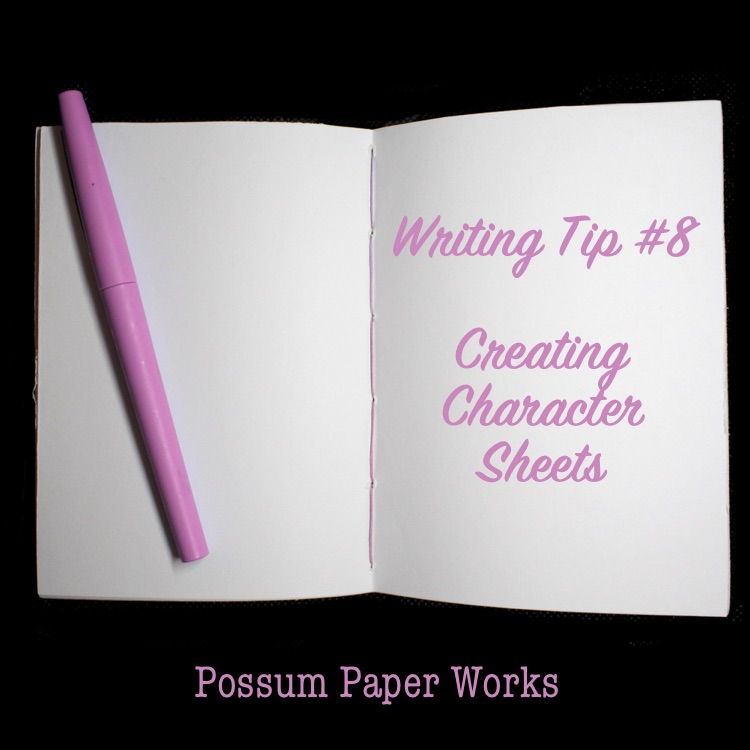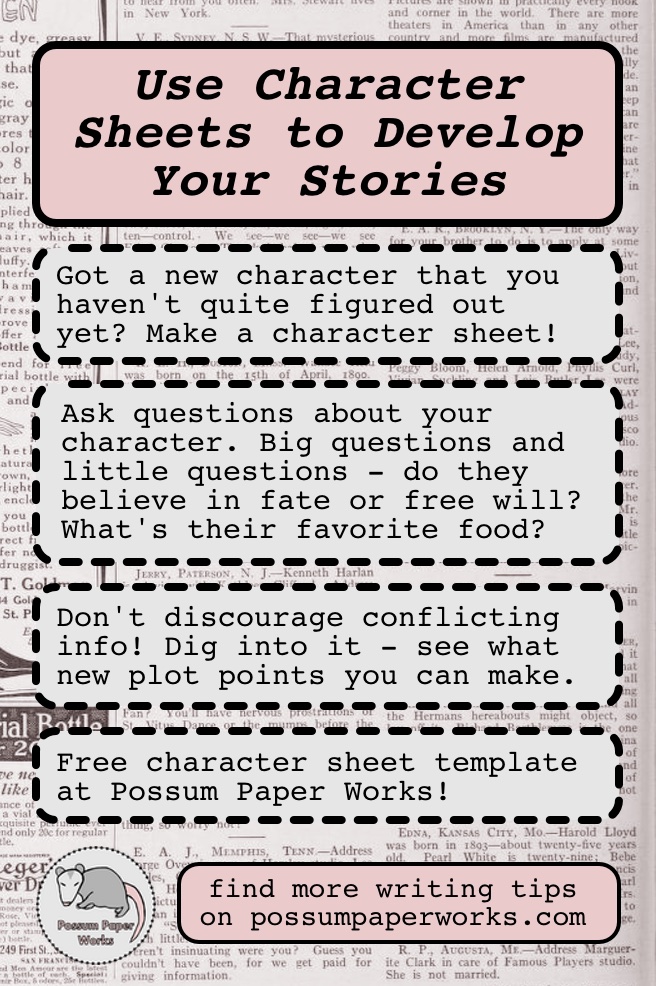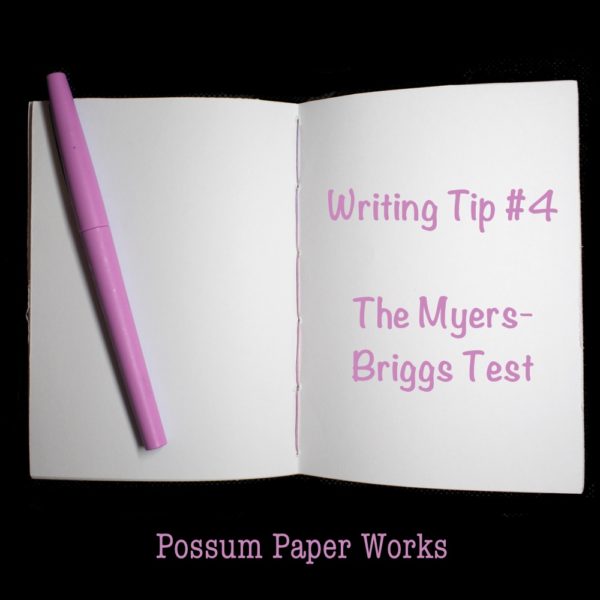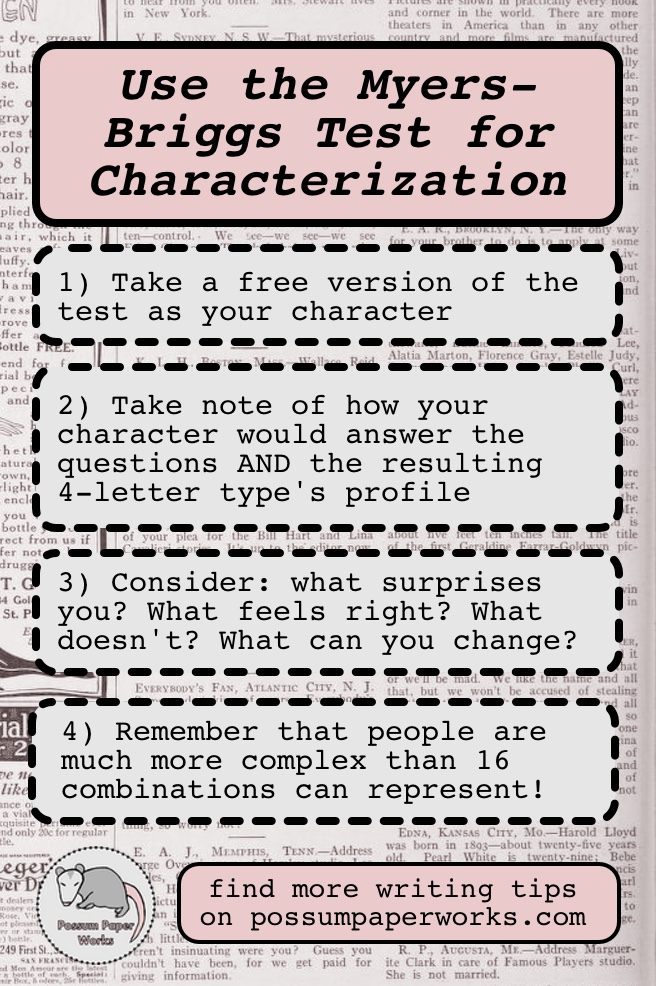
Howdy! Today we’re looking at a tool that has helped me immensely in the past – character sheets. Yes, like the ones you make in D&D campaigns. Sort of. Stick with me here – free stuff on the way!
Writing Tip #8 – Character Sheets
I love writing characters. By love, I mean I write stories about characters, not characters within stories. It’s very rare for me that the plot comes before the people that live through it.
Back in the early days of my writing, I wanted to find a way to develop the little things about those people better. Somehow (probably via Springhole), I discovered the all-powerful concept of character questionnaires.
I’m a strong believer that the best characters are the ones who have more aspects than even the writer can ever fully know. Those characters are the ones that seem like humans in their own right.
Like weird magazine interviews, making character sheets can help develop your characters into full fledged people.
Before you know it, you’ll have things to slip in about your characters that surprise even you. You can find out that your quiet middle-aged librarian is really into hockey and EDM. It happens.
Character sheets can also help you keep track of the little things. The stupid tiny details that you forget and make you want to scream. Like what the name of your character’s guinea pigs are. That isn’t something you want to forget.
My list is a combination of multiple different character questionnaires I found around the web. I edited the questions to serve my own purposes. Mostly, I made it easier and faster. Most rows can be filled with only a few words, but there’s lots of sections for creating a detailed portrait of your character.
If my suggestions don’t work for you, I recommend looking up other worksheets. Shorter versions (or longer) might work better for you.
As always, don’t take my word for law! Part of the magic of writing is finding out what works for you.
Start with the basics.
Just beginning? Write down the simple things – what your character might have on their IDs, what they fill out on application forms.
Name, nicknames, gender and pronouns, age (approximate is okay), birthday, height and weight, distinguishing physical features, if they wear glasses or contacts, what languages they speak or otherwise know, and if you want, the MBTI personality type that best describes your character.
These are basic things that you’ll want to keep consistent. Trust me, you don’t want to forget that yes, your character does wear dark glasses so no, you can’t write about what their eyes are up to.
True story.
Move onto the external.
What’s your character’s place in the world? Specifically, look at the relationships they have with other people.
Your character’s family, marital status, sexuality, significant others, pets, closest friend(s), other friends, enemies, other relationships, ethnicity and/or race, and religion are all good things to consider.
If you’re working on two or more characters, keep in mind that the relationships one character values might not be the same as the other person. Just because Person A considers Person B a close friend, Person B might not think of Person A that way.
Play around. Some of the best conflict in stories can come from knowing how your characters interact.
Get physical.
No, I don’t mean fight your characters (unless you want to). I mean dig into their physical presence. You’ve already covered how they look generally. Now you want to look at the other details, the kinds of things a good actor or con artist could change in an instant.
To start, figure out their what their diction (word choice) is like, how fast they talk, if they have any natural accents, and other speech patterns. Do they have any particular mannerisms (behaviors)? What’s their general demeanor like?
You can also look at how they groom themselves, what their usual physical posture is, what gestures they make often (including nervous tics), and what their handwriting looks like.
All of these details can make it easier for you to describe your character, and thus create a stronger image for your reader to imagine.
Work, home, and other fun things.
Find out your character’s education level and any degrees earned. What’s their job? Do they like it? Where have they worked in the past? What’s their financial situation?
Figure out where they live. That can be the country, the city, or right down to the street number, if that’s what you want. Are they an owner or renter? Do they live with anyone else?
What do their main living and working spaces look like? Are there any other places they spend a lot of time? How do they usually get to all these places (car, bus, horse and carriage, private helicopter, etc.)?
I have spent more time than was logical researching tiny details about Baltimore, MD to fill out this section for a set of characters. Don’t do that. Unless you really like figuring out bus routes. In which case. You do you. No judgement.
Likes and dislikes.
This is a fun one. And often quite challenging. Don’t let it fool you. Figuring out what characters like can get hard.
Like hobbies. Some people don’t even consider themselves to have hobbies. It’s your job to figure out what your characters do in their free time. Even if, as a friend of mine said, their hobby is just vibing.
What are their eating habits and food preferences? What’s their sleep schedule like? What kinds of books, music, TV, and other entertainment do they like? Any specific titles?
You’ll also want to think a little about how they dress. It can be as simple as what kind of shirts and pants they wear, or as detailed as a link to a Pinterest board. If there’s any special accessories that are important, like wedding rings or other mementos, make sure to make a note of that too.
Any quirks? I don’t love that word, because normality is both fake and overrated, but hey. We’ve all got those little things we do that most other humans don’t.
Become a doctor.
Not literally. Just a WebMD doctor, if you get really into it.
What’s the general health status of your character? Are they perfectly dandy, on death’s door, or somewhere in between? Any allergies, chronic conditions (including mental kinds), disabilities, or addictions? Do they take medications – or magic repressant potions? Your call.
If relevant, a detailed medical history might help you keep track of more complex backgrounds.
Just please, please, please, don’t define a character entirely by their mental/physical ability levels. Been there, done that, still mad at my younger self for thinking that was cool. People are complex. Your characters should be too.
Get inside their head.
Time for the fun part. Figure out what it’s like to be inside your character’s brain.
Ask about their fears and their secrets. Find out their general outlook on life and humanity/people, and how they approach both. I write a lot of surly-ass cynics with hearts of gold. Whee.
What makes them the most comfortable? Most uncomfortable? Their greatest wish, greatest fear, greatest strength, greatest weakness? What otherwise stresses them out?
Consider their political/ideological stance, both in relation to specific parties (if applicable) or general ideas. What would they think about welfare programs? Race and gender? Global trading? Go big or dig deep. Ask what they value. Find their prejudices, fair or not. You don’t have to like everything about your character.
That said, other characters won’t love everything about any given person, either. Investigate what other characters think about your character. Discover what your character thinks about themself. Any conflict between the two? Capitalize on it.
I’m fascinated by asking my characters how they feel about free will and fate. It’s rarely a simple answer, but it can define many of their actions and reactions. How does a believer in free will justify bad decisions? How do the faithful hold their faith after tragedy strikes?
If you want to get really deep, ask how your character themself would react to being asked about any of these things. What would they lie about? What do they want to believe about who they are?
Anything else?
If there’s anything else relevant to your character that you haven’t included, write it down!
Remember, character sheets are for your reference. Don’t skimp out. If you couldn’t find another place to detail the wild history of your character’s crocodile-wrestling adventures in Egypt, tack it on.
If you’re lost for plot points later on in your process, character sheets can help you find the little bits of conflict and humanity that make fresh ideas smash into your brain. Those weird hobbies you vaguely mentioned? Well, turns out the heist needs a badminton expert now. Those guinea pigs? Your character has a side gig photographing them for Instagram.
I dunno, man, it’s your character. Go with it. The better you know your character, the easier it is for them to tell you their story.
And isn’t that all we’re trying to do?





